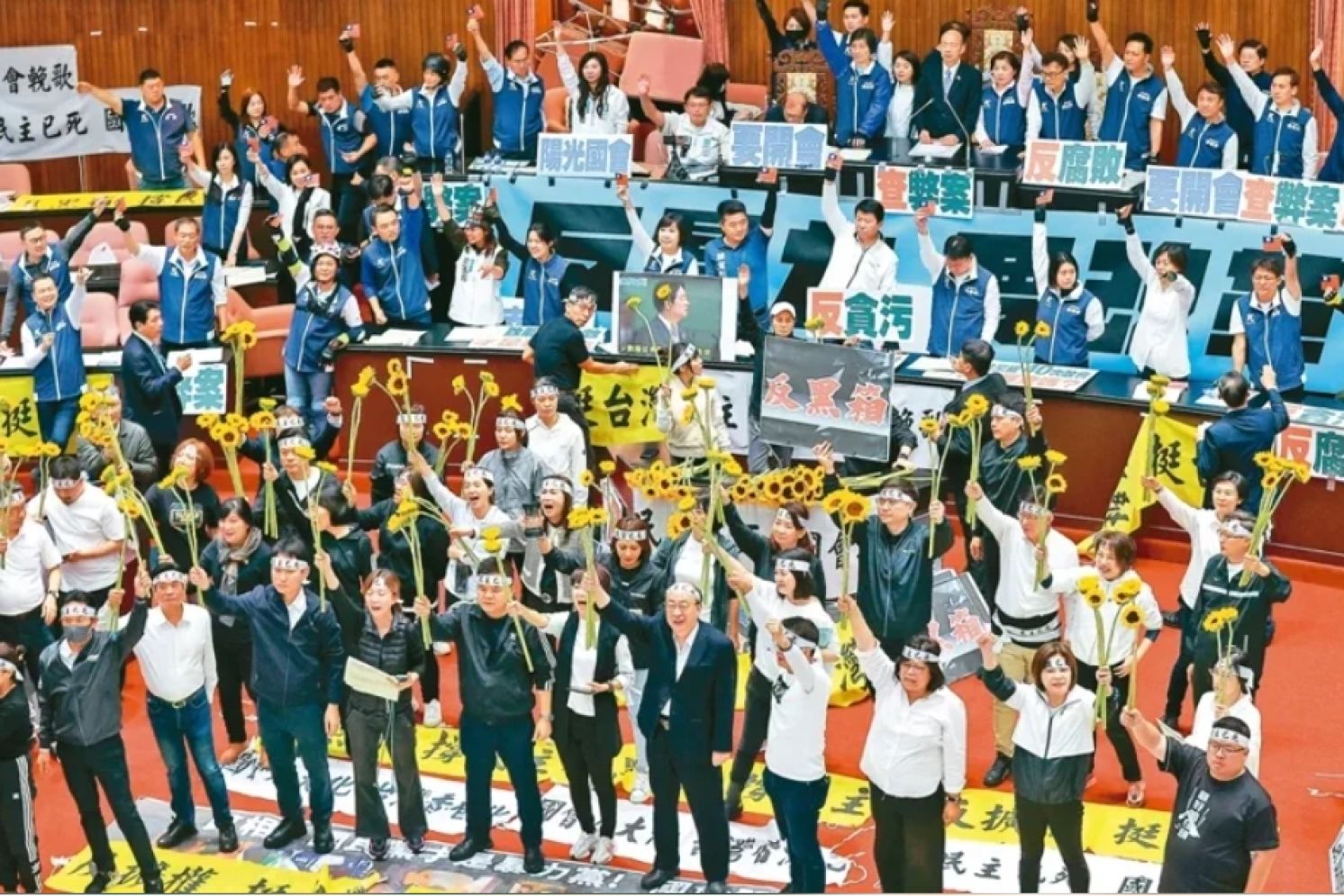
This Week in Taiwan 0519-0525
May 20: President Lai Ching-te was inaugurated. Unlike former President Tsai Ing-wen, who emphasized handling cross-strait affairs based upon the Act Governing Relations between the People of the Taiwan Area and the Mainland Area during her inauguration eight years ago, President Lai stated that the Republic of China and the People's Republic of China are not subordinate to each other and called on China to face the existence of the R.O.C.
Mainland Chinese official media launched an intensive campaign against President Lai's speech. Xinhua News Agency characterized his speech as promoting Taiwan independence and openly advocating a "Two-State Theory." It also claimed that President Lai's stance on independence surpassed that of former presidents Lee Teng-hui, Chen Shui-bian, and Tsai.
May 21: Former President Ma Ying-jeou expressed concern that President Lai's inaugural address immediately posed unpredictable risks and challenges to cross-strait relations. Ma urged Lai to revise the new "Two-State Theory" mentioned in his speech and to avoid self-deception. Ma emphasized that according to the R.O.C. Constitution, Taiwan and the mainland are not two separate countries, and Taiwan will not move towards independence. Adhering to the constitutional cross-strait framework is essential to avoiding conflict.
May 21: The Department of State "welcomed" President Lai Ching-te's commitment to maintaining peace and stability in the Taiwan Strait and the status quo in cross-strait relations. The United States reaffirmed that its "One China" policy has not changed and will not change. When asked by Taiwan media about the Kuomintang's (KMT) criticizing President Lai's inaugural address for endorsing a "Two-State Theory," Spokesman Matthew Miller did not express an official position and suggested directing inquiries to the Taiwan authorities.
May 22: Beijing implemented a series of countermeasures against the United States over Taiwan-related issues. First, it announced sanctions on American companies, including Boeing Defense, Space & Security, General Atomics, and General Dynamics Land Systems, prohibiting them from engaging in activities related to China and imposing restrictions on new investments. Later, China also sanctioned former House Representative Gary Ackerman and simultaneously targeted 12 American defense companies and 10 executives.
May 22: Secretary of State Pietro Parolin of the Holy See expressed that the Vatican hopes to establish a permanent representative office in China. If realized, this would be a significant upgrade in relations between the Vatican and Beijing. The Vatican is currently Taiwan's only remaining diplomatic ally in Europe, and whether the relationship will change has caused concern. The Ministry of Foreign Affairs emphasized robust diplomatic relations.
May 23: The People's Liberation Army (PLA) Eastern Theater Command conducted a two-day military exercise called "Sword 2024A." The PLA emphasized that this exercise serves as a strong deterrent against Taiwan's pro-independence forces and a serious warning to external powers interfering or provoking. The exercise covered Taiwan's surrounding waters and marked the first time it extended into restricted areas near Wuqiu and Dongyin islands. Additionally, mainland China's Maritime Safety Administration announced plans for further military training and missions in the South China Sea and Yellow Sea. The United States Department of Defense criticized China's actions as reckless and heightening tensions.
May 24: The Legislative Yuan's continued review of legislative reform bills saw heated clashes among political parties. After two late-night sessions, the bills passed second reading. The legislation includes provisions for penalizing officers who defy interpellation or show contempt for the Legislative Yuan, with fines up to NT$200,000 (about US$6,214). Additionally, the Legislative Yuan will adopt named voting for political appointments, with a minimum review period of one month.
May 24: The Taiwan Public Opinion Foundation released a recent poll on the "contempt of parliament" provision in the legislative reform bill. The survey found that 58 percent of respondents support the legislation, while 29 percent do not. The opposition's push for this provision has resonated strongly with the public, while the Democratic Progressive Party (DPP) has failed to secure both the Legislative Yuan’s vote and the people’s favor.